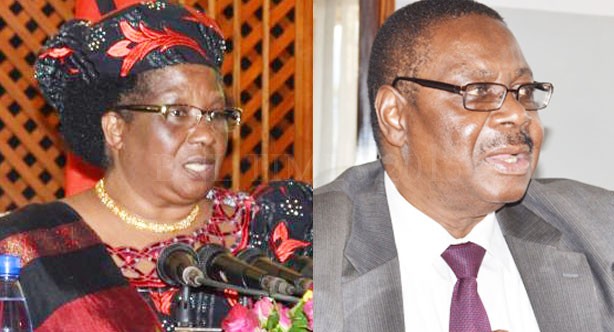The curse of recycling leaders: Malawi’s descent into chaos as ex-presidents maneuver for energy – Malawi Nyasa Instances
As Malawi inches nearer to the 2025 normal elections, a disconcerting political actuality is taking form—former presidents Peter Mutharika and Joyce Banda are positioning themselves to reclaim energy. This growth shouldn’t be taken flippantly, because it alerts the potential for a harmful recycling of management that failed to fulfill the nation’s wants up to now.

The world resurgence of ex-presidents searching for to return to workplace is just not with out precedent. Leaders like Donald Trump within the United States and John Dramani Mahama in Ghana have reignited their political ambitions, usually using on a wave of nostalgia and public dissatisfaction with incumbent governments.
However, the contexts in Malawi demand a deeper reflection. The query is just not merely about giving ex-leaders a second probability; it’s about whether or not these people can present the transformational management Malawi so desperately wants.
Peter Mutharika’s presidency from 2014 to 2020 was marred by allegations of corruption, governance failures, and an obvious incapacity to deal with urgent nationwide challenges. Under his management, Malawi skilled important scandals, together with questionable procurement offers, allegations of state seize, and the plundering of public sources. While Mutharika has usually distanced himself from these controversies, critics argue that his administration fostered a tradition of impunity and lack of accountability. For many Malawians, his tenure symbolizes a interval of stagnation somewhat than progress.
Joyce Banda, regardless of her preliminary reward for stabilizing a nation in disaster, left workplace along with her legacy overshadowed by the notorious “Cashgate” scandal, the place billions of kwacha had been siphoned from public coffers beneath her watch. Banda’s worldwide acclaim as a reformist chief did little to restore the deep mistrust at residence, as her authorities struggled to revive monetary self-discipline and guarantee justice for these implicated within the scandal.


The potential return of those two leaders highlights a deeper subject in Malawi’s political tradition—an over-reliance on acquainted faces, even when their data recommend warning. While proponents argue that have issues, it’s essential to guage what sort of expertise these leaders convey. Mutharika’s presidency noticed a deteriorating financial system, skyrocketing unemployment, and chronic corruption, whereas Banda’s tenure ended with unresolved governance failures and weak institutional reforms.
Allowing these former leaders to return dangers perpetuating the identical challenges which have traditionally plagued Malawi. It might anchor the nation to a previous outlined by financial mismanagement, insufficient governance, and the prioritization of political survival over nationwide progress.
Moreover, the political baggage these leaders carry might exacerbate divisions inside an already polarized voters. Instead of uniting the nation, their return might reignite previous animosities, as they could focus extra on repairing their legacies or settling political scores than addressing the actual points dealing with Malawians.
This recycling of management additionally stifles the emergence of latest voices and contemporary concepts. Malawi’s Vision 2063 requires transformative and forward-thinking management to drive financial development, enhance governance, and construct a self-reliant nation. Recycling former leaders with questionable monitor data is a direct contradiction to this aspiration.
Malawians should critically consider whether or not these leaders can genuinely supply options to the urgent challenges of meals insecurity, financial instability, and rampant unemployment. Nostalgia for previous administrations mustn’t blind voters to the potential for transformative management from a brand new era of leaders who’re unburdened by previous failures and scandals.
The return of Mutharika and Banda shouldn’t be seen as an answer however somewhat as a symptom of a damaged political system the place failure is rewarded, and innovation is stifled. Malawi stands at a crossroads. The selection is between clinging to the consolation of the recognized, regardless of its failures, or embracing the opportunity of new management that prioritizes accountability, transparency, and progress.
In 2025, Malawians should resolve whether or not to stay up for a brighter future or stay tethered to a previous that has persistently didn’t ship on the promise of prosperity. Recycling the previous could seem to be a protected possibility, however it’s a gamble that Malawi can’t afford to lose.
Follow and Subscribe Nyasa TV :


